Oswald Chong: Seeking truth through data
Oswald Chong labels himself a skeptic.
“I always question people indirectly as I don’t like to confront people directly,” said Chong, an associate professor in the Del E. Webb School of Construction, part of the School of Sustainable Engineering and the Built Environment, one of the Ira A. Fulton Schools of Design at Arizona State University.
“I can only believe in something if I can see it.”
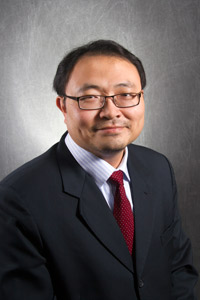
Oswald Chong
Chong wants to see real data to back up people’s statements. His research focuses on clustering, modeling and disseminating sustainable engineering knowledge and understanding and modeling the degradation and recovery processes of materials, products, buildings, infrastructure and systems.
“I’m not a big fan of statistical analysis, and I prefer mathematics,” Chong said. “You can remain uneducated even if you know how to read statistics. You can still hide the truth with statistics. I’d prefer to challenge the status quo.”
Chong frequently “hijacks” data from the World Wide Web.
“We’re all legal hackers,” he jokes. “We’re using data available from various sources to develop models in order to improve our understanding of the world.”
Chong hopes that, in five to 10 years, he’ll have a method of discovering and presenting data that quickly presents the “truth” in real time.
While Chong was on the faculty at the University of Kansas, he noticed people complaining about practices at Walmart. Chong decided to look at the data and compare the Walmart and Target stores in Lawrence, Kansas.
His findings: The Walmart in Lawrence used one-third the energy per square foot than the Target in Lawrence, and 20 percent of Target’s merchandise came from China, compared to 14 percent of the merchandise at Walmart.
“I’m not saying you should patronize Target or Walmart, just get the real data before you judge,” Chong said.
Chong spent eight years in Saudi Arabia, and grew up in Singapore, where his father worked at Bank of America. When Chong was 11, his father died of hepatitis, which he contracted from the food he ate while traveling.
When Chong was ready to go to the National University of Singapore, he wasn’t sure about a major.
“In Singapore, you choose the major that will give you the best-paying job or career, doctor, lawyer, accountant, engineer, something guaranteed to give you a good life,” Chong said. “My two older brothers chose banking, and I could see they had no life and were stuck at work all day.
“I was thinking about law, as lawyers are often rich. But then I thought I might like to sell real estate.”
At the National University of Singapore, real estate, urban planning, architecture and building engineering are grouped in one school. Chong quickly decided that real estate was too soft for him, and that it sounded a lot like banking. So he switched to building.
He finished his degree on the fast track, graduating in 3. years, in order to save the tuition for the last semester.
His first job was with the Singapore government, but he said it was clearly a job for retirees. Chong got bored, and decided to get his master’s degree at the University of Singapore, while switching his job to a tunneling contracting firm (later sold to Bouygues). In his six years with the company, he worked in seven countries, and with people from more than 25 countries.
“I got tired of the travel, and decided to get married,” Chong said. “So I decided to pursue one of the dreams on my list: A doctoral degree.”
Chong came to the United States to work on a doctorate in civil engineering at the University of Texas at Austin, and then got a job teaching at the University of Kansas. He founded and co-chaired the International Conference on Sustainable Design, Engineering and Construction, and was about to leave academia to create a startup. A phone call from someone at ASU changed everything.
Chong’s wife, Yvonne Lai, used to work for Haworth, which designs and manufactures adaptable workspaces. They have two boys, Osmond, 8, and Osten, nearly 2.
Chong likes to read but he hates novels.
“My dad has to bear the responsibility for this,” Chong said.
He forced Chong to read aloud several of the “Biggles” books, a series about a fictional pilot who serves in both world wars.
“You can guess the result,” Chong said.
He also dislikes books written with opinions.
Chong also plays the keyboard and swims during his free time, when he can find some. When he was younger, he ran 12 marathons, played rugby and water polo, and biked.
He also he traveled to dangerous places.
With two children and a wife, Chong said he can no longer be that adventurous.
These faculty profiles were written as part of the celebration of the grand opening of the College Avenue Commons, the home of the Del E. Webb School of Construction, in 2014.
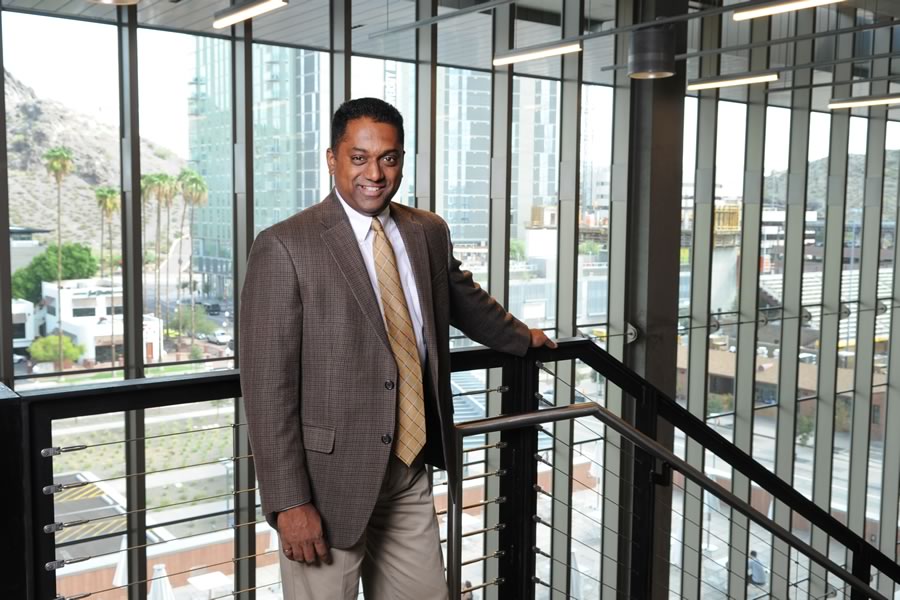
Sam Ariaratnam: Digging his way to the future
“ASU is a dynamic place. In real estate, it’s location, location, location. It’s the same in education. The Phoenix metro area has a dynamic construction industry and it is helping us build a world-class program.”Sam Ariaratnam is digging his way to the future. But...
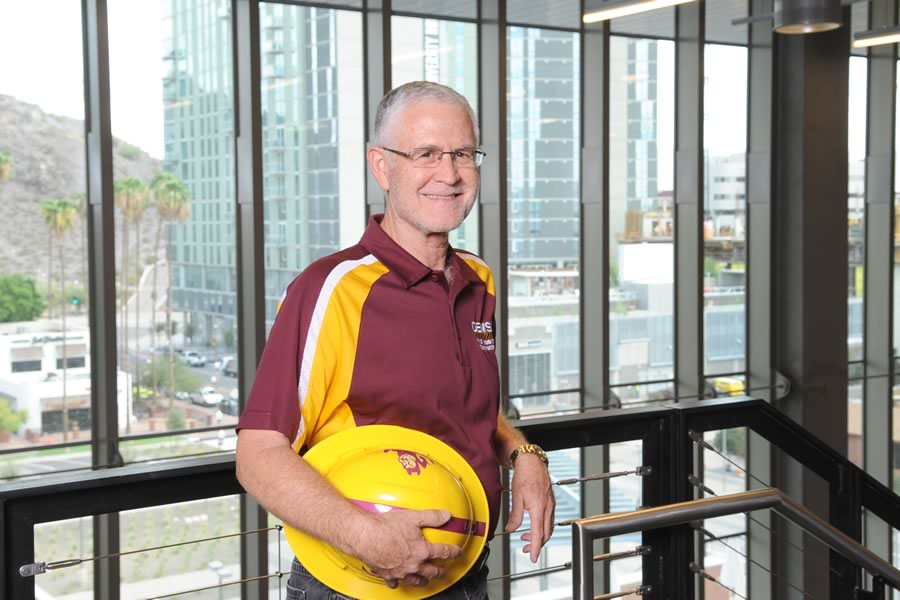
Allan Chasey: Embracing his construction destiny
“I enjoy seeing buildings going up. There are few professions where you can go back 20 to 30 years later and say, ‘I had something to do with that.'”Editor’s note: Allan Chasey retired in the fall of 2016, but his construction management legacy lives on in the DEWSC....

Mounir El Asmar: Looking to fuse disciplines
Mounir El Asmar has always been interested in multidisciplinary integration. Growing up in Beirut, Lebanon, and having gone through the French education system throughout his childhood, he juggled the idea of American versus French college education, and the majors of...
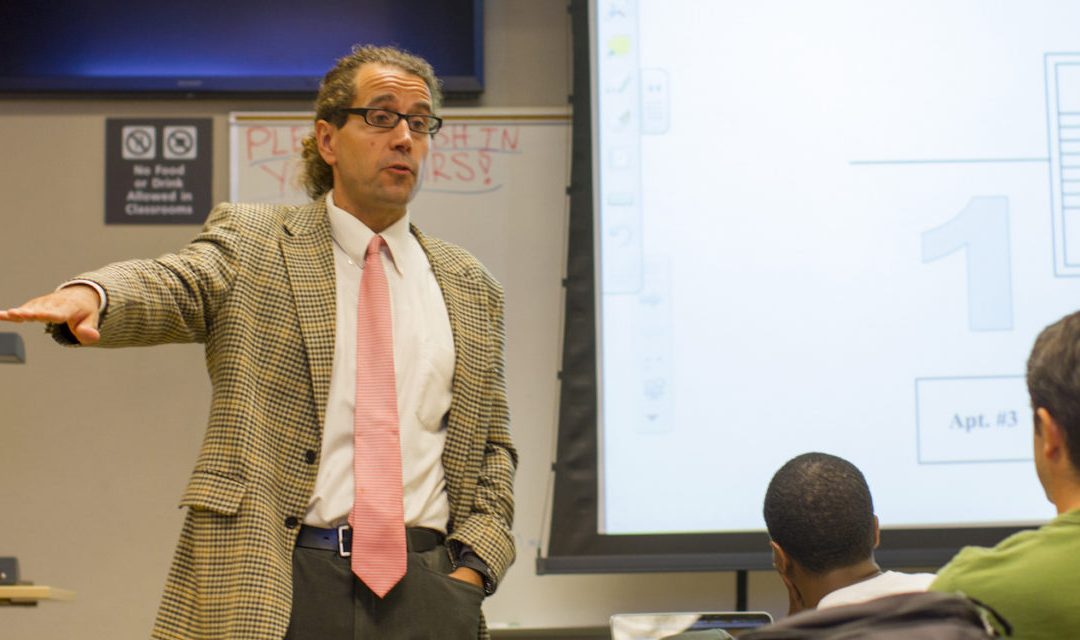
David Grau: The human element and variability
David Grau worked for years in the design and construction industry, and saw firsthand that the large complexity intrinsic to the delivery of capital projects resulted in variability and uncertainty. In turn, he observed that such uncertainty negatively impacts the...
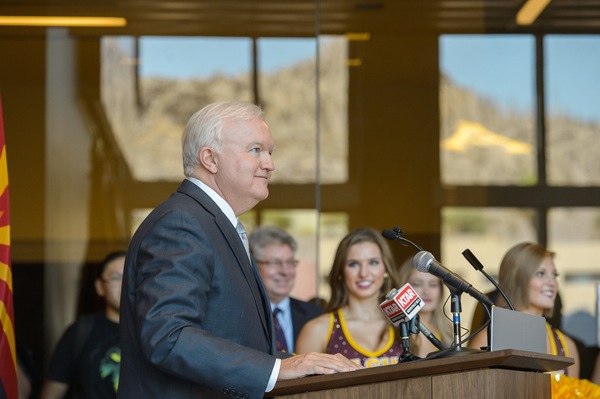
Edd Gibson: Leading through teaching and planning
“Planning is the intersection between business and engineering,” Gibson said. “Why are we doing the project? How should we proceed? What is the scope? It’s all about people and risk management, and this is when you have the largest influence on creating a successful...
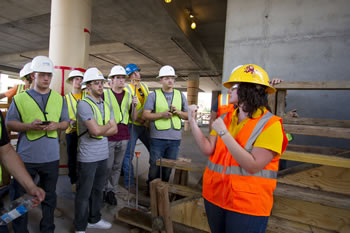
Kristen Parrish: A love affair with physics and teaching
Kristen Parrish – Sustainability Profile from ASU Engineering on Vimeo Kristen Parrish fell in love with physics in her 10th grade class in Michigan. “It was kinematic equations, figuring out how far you could drive a car up a ramp,” Parrish said. “I asked my...
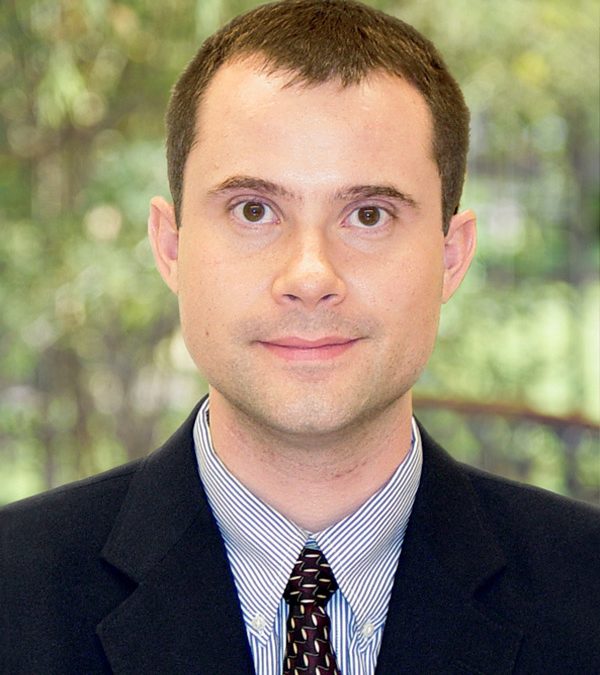
Kenneth Sullivan: ‘It’s all about people’
Kenneth Sullivan will tell you: Project performance? It is all about people. It always has been. “An efficiently engineered process can drive performance outcomes, but to truly optimize, the capability of the key individuals participating in that process is key. When...